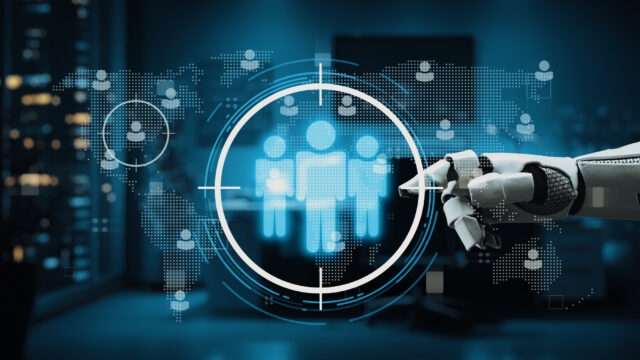82% of HR professionals use AI, but most lack job-specific training

As AI continues to change the workplace, HR teams are adopting the technology quickly, but many are doing so without the support or training needed to use it effectively.
A new survey from General Assembly shows that 82 percent of HR professionals use AI at work, yet only 30 percent have received training tailored to their roles.
SEE ALSO: Half of Americans think AI is a threat, the other half don't. Who's right?
The research points to a growing divide between AI adoption and preparedness. While many HR professionals are eager to apply AI tools in their daily work, most have had to figure it out on their own.
This lack of structured, job-specific training is creating uncertainty and uneven results, even as many report real productivity gains from AI.
HR teams are already applying AI to core functions. The survey found about 46 percent use it to write job descriptions or analyze employee feedback, while 45 percent apply it to designing training materials.
Only a small portion of respondents said they feel fully equipped to use AI tools with confidence. Among those who received role-specific AI training, 85 percent say they feel very or completely confident in their skills. In contrast, those learning through self-guided methods report lower levels of confidence and effectiveness.
According to the survey, conducted in June 2025, most HR professionals want better training resources.
Around 70 percent said they are interested in interactive workshops that focus on useful and practical HR tasks. Another 63 percent want regular training as AI tools continue to change.
For those not yet using AI, 59 percent said they would only feel comfortable starting with hands-on, HR-specific instruction.
There’s also a generational and industry gap. Gen Z professionals were the most likely to report no formal AI training, with 38 percent saying they had not received any.
Healthcare was the top industry where HR professionals said they had no training, while those in finance and professional services were the most likely to receive training that directly applies to their jobs.
“HR teams who receive job-specific AI training are 35 percent more likely to say they are very or completely confident in their AI skills at work than those who learn AI on their own,” said Daniele Grassi, CEO of General Assembly. “HR teams are on the frontlines of talent development and employee upskilling, and they must understand emerging workplace technologies.”
Outside the 30 percent who have received comprehensive, job-focused training, 18 percent received only basic concept training, 12 percent went through generic sessions with little relevance to HR work, and 14 percent found their own way to learn. Another 26 percent have had no formal training at all.
Mandating AI
The survey also revealed that company approach matters. Mandating AI use often leads to frustration. About 41 percent of HR professionals at companies that require AI said it actually added to their workload and pulled them from other tasks.
That compares with just 13 percent at companies where AI use is encouraged but not required. These numbers suggest that pressure without support is likely to hurt more than help.
Only 6 percent said they felt motivated to use AI because company leaders told them to.
The real drive comes from a desire to improve productivity, reduce time spent on repetitive tasks, and produce better work. Many HR teams see potential in AI but need the right support to make it useful in their context.
HR professionals want to expand how they use AI. Top priorities include workforce planning, writing employee communications, and improving training content. With better tools and role-specific instruction, many feel they could unlock more value from AI.
What do you think about HR’s adoption of AI? Let us know in the comments.
Image Credit: BiancoBlue / Dreamstime.com
